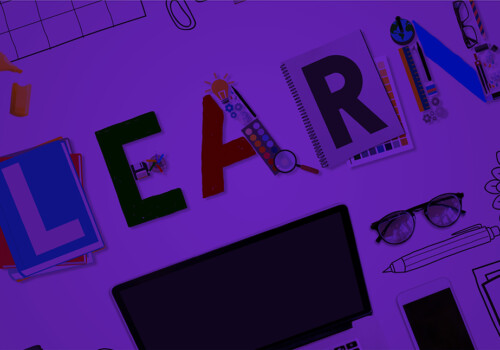Not understanding what employees are running away from and what they are moving towards is one of the most pressing challenges that organizations face today. Is the ongoing trend of the Great Resignation a permanent fixture, or is there a way to prevent it? In this series, we delve into a critical aspect of contemporary workplaces – building a fair system of appraisals so that employees stay and build a mutual growth story. Join us on this exploration.
The Crucial 'Why' Behind Appraisals and Your Employees’ Growth
Why bother changing your appraisal system when things seem to be working fine? The question is, are they? The most common understanding of why people leave companies is that they want better pay while the most common reason why they do is to look for appreciation and value. Those who think attrition is going down have their heads turned towards the wrong direction.
In the gamut of organizational management, performance appraisal has become an integral tool for evaluating and recognizing employee contributions. As such, it is imperative to understand the context and motivation behind the ongoing discourse on fair appraisal. The significance of fair and equitable performance evaluations has gained heightened attention due to evolving workplace dynamics, increased emphasis on employee well-being, and a growing recognition of diversity at workplace and inclusion. In any organization, performance appraisals are an essential event that enables the organization to assess an individual based on predefined goals, understand problematic trends and help set up improvement plans for the individual’s growth. In this series, we will unravel intricacies surrounding the current state of appraisal processes and shed light on the pressing need for fairness in assessments within contemporary work environments.
Managers don’t like giving appraisals, employees don’t like getting them
Traditional appraisal approaches tend to suffer from subjectivity, inconsistencies, unconscious and recency bias mostly due to lack of objective data. These systems are susceptible to bias, as subjective evaluations by managers may not capture the full scope of an employee’s performance. Additionally, the lack of continuous feedback in traditional appraisals hinders employee development and may contribute to a disconnect between stated goals and day-to-day responsibilities. Flawed appraisal systems which fail to acknowledge and reward employees based on merit, result in organizations losing valuable talent. The absence of fair appraisals can have a profound impact on employee morale, team dynamics, and ultimately, the success of an organization.
Managers, obviously, are a critical part of the appraisal system. Hence, training them can ensure fair and effective performance evaluations and navigate complex assessment processes. Training programs should focus on identifying and addressing unconscious biases that may impact assessments. Encouraging self-awareness and cultural sensitivity helps managers make informed and impartial judgments, fostering an inclusive workplace. Additionally, ongoing training enables managers to adapt to evolving work environments and equips them with tools to provide constructive feedback, enhancing the overall quality and fairness of performance evaluations.
Gone are the days of climbing the corporate ladder; now it's about navigating the career jungle gym.
The changing nature of work has taken a seismic shift from the traditional paradigm. Remote work is acceptable and flexible schedules are now commonplace, allowing workers to optimize their productivity during their most effective hours, challenging the conventional 9-to-5 structure. Moreover, the rise of the gig economy has redefined the employer-employee relationship, emphasizing short-term engagements and project-based collaborations. From this perspective, performance evaluation is increasingly focusing on outcomes rather than mere presence, with technology playing a pivotal role in tracking and assessing contributions in a dispersed and digitally connected workforce. We will cover more of that in the second edition of this series.
Coming back, as the modern work environment evolves, organizations are grappling with the need for innovative performance management strategies that align with the realities of this new professional era.
Achieving fair appraisals for employees isn’t easy by any means. One significant hurdle lies in the inherent subjectivity that may taint evaluations, as managers’ biases and perceptions can influence assessments. Balancing the diverse skill sets, roles, and contributions of a varied workforce adds complexity to the appraisal process, making it difficult to establish universal criteria. The lack of transparent communication and feedback mechanisms further compounds the challenge, hindering employees’ understanding of the assessment criteria and impeding their ability to align with organizational expectations. Additionally, traditional models often struggle to adapt to the changing nature of work, including remote arrangements and gig economy involvement, raising questions about the relevance and effectiveness of existing appraisal methodologies. Overcoming these challenges requires a commitment to transparency, continuous feedback, and the incorporation of technology to minimize biases and ensure a more equitable and accurate evaluation process.
From evaluation to elevation: Modern appraisals are the launchpad for professional growth
In conclusion, the modern appraisals stand as the dynamic launchpad propelling individuals towards unparalleled professional growth. No longer confined to mere reviews, these appraisals serve as transformative experiences, fostering continuous feedback, skill refinement, and a culture of ongoing improvement. The evolving nature of work demands a shift in mindset—from static evaluations to dynamic partnerships between employees and organizations. By embracing it, modern appraisals not only measure past achievements but lay the foundation for a successful future of the workplace. As we harness the potential of modern appraisals, we not only evaluate performance but also cultivate an environment where each individual can flourish, learn, and reach new heights in their professional journey.
Author: Shubhankar Jyotirmaya
In the next edition, we will talk about one of the biggest propellers of a fair appraisal system in the modern workplace – technology. We will discuss how technology can be used to transform the current appraisal practices, replacing them with a more accurate and unbiased evaluation of an employee performance.
Subscribe to our blog and stay updated!
Share This Story, Choose Your Platform!





